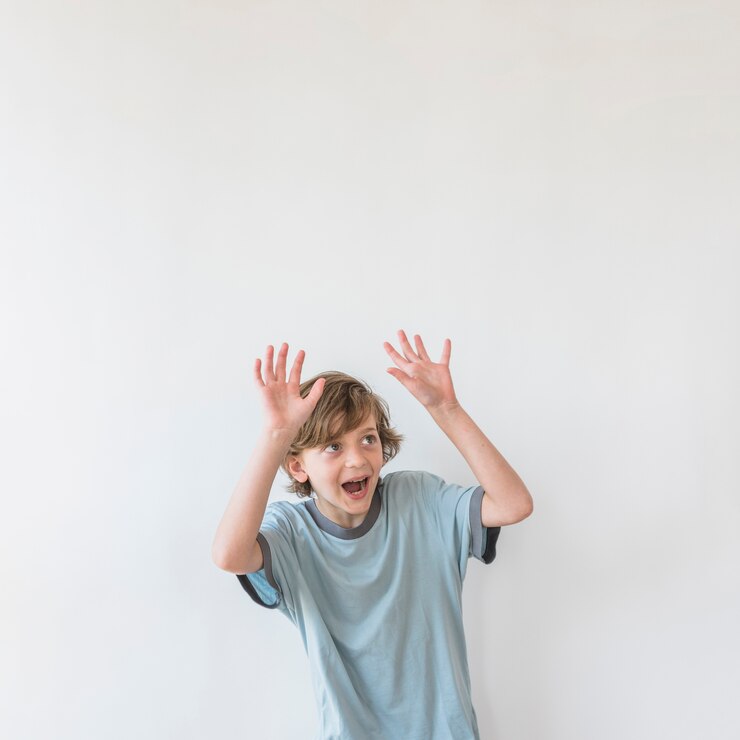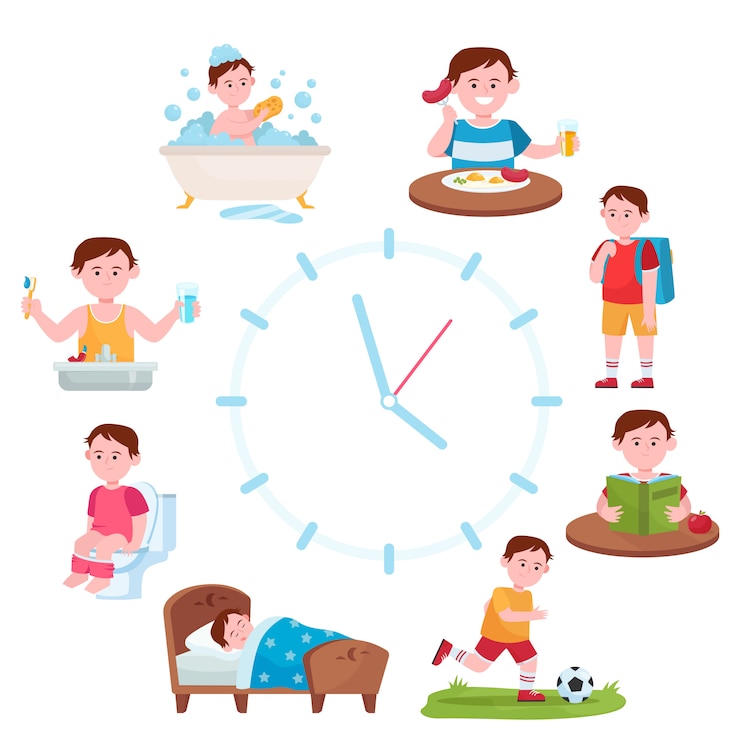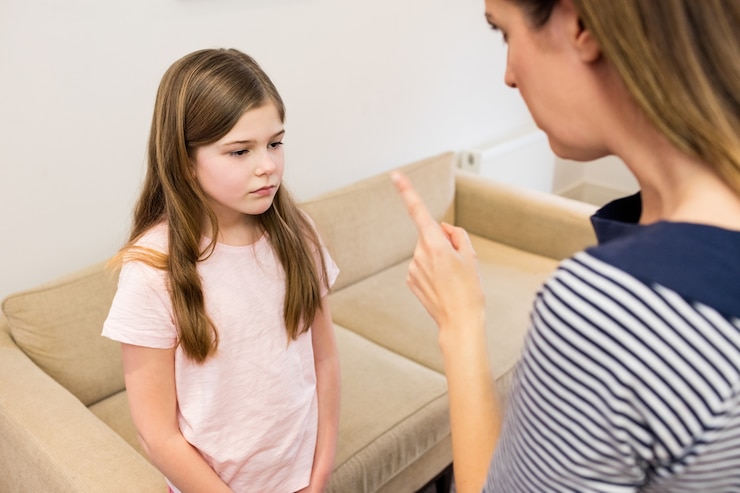
Even kids sometimes need a break for their mental well-being. The pressures from school, social life, and various activities can become too much, and taking a pause to recharge can make a big difference. In this guide, you’ll find 10 activities recommended by a mental health professional that can help your child regain balance and feel better emotionally.
Table of Contents
“Even if I agreed to give my child a mental health day, what would we do?” is a question that many parents face when considering giving their overwhelmed child a day off from school or usual activities. Fortunately, the solution is straightforward, requiring no special preparation or cost. While kids might be tempted to escape into their screens all day, engaging in some constructive activities can enhance their time off and provide a much-needed emotional reset.
Start the day by having a conversation with your child to set expectations and allow them to choose some activities from our list. This approach can help them feel involved and steers them toward a sense of calm and confidence.
Here’s a list of powerful activities to boost your child’s well-being, supported by extensive research and evidence.
Related read: 100 Ways to Boost Mental Health
The most important thing you can do for your child on a mental health day is to connect with them emotionally. This means giving them your full attention and genuinely listening to understand their feelings, not just to respond. When parents engage with sensitivity and warmth, kids are more likely to form healthy, trust-filled relationships, fostering confidence and emotional well-being. Research shows that warm and responsive parenting helps shield children from toxic stress.
Pro Tip: For younger kids, connection is often more about play and shared activities than conversation. Pay attention to how and when your child tends to open up.
Physical activity is incredibly beneficial for mental health. Exercise helps process emotions and releases feel-good endorphins while lowering cortisol, the stress hormone. Aerobic activities, in particular, have been shown to be as effective as medication or therapy for depression and anxiety and are something kids naturally enjoy.
According to the American Psychological Association:
“On average, children who exercise more experience less depression, stress, and psychological distress, and have higher levels of positive self-image, life satisfaction, and psychological well-being.”
Pro Tip: Ask your child if they’d like to choose an activity to get moving, or if they’d like you to decide. This way, they maintain some control, especially if they’re feeling overwhelmed.
Life can sometimes feel like running on a treadmill, moving from one task to the next without knowing why. Your child needs quiet time and space to find perspective and reflect. This downtime is crucial for the brain’s regeneration and growth.
“Silence offers opportunities for self-reflection and daydreaming, which activates multiple parts of the brain. It allows us to quiet the inner noise and focus on what really matters. It nurtures mindfulness — the recognition and appreciation of the present moment.” – Cleveland Clinic
Pro Tip: Simply provide open, unstructured time for your child. Easy, right?
Play is essential for kids, facilitating learning, social development, stress relief, and emotional expression.
Dr. Megan Gunner of the University of Minnesota explains how play reduces stress:
“Play is the best medicine in stressful times because it gives children control. By definition, play is voluntary, not obligatory, providing a way for children to dictate what happens and predict outcomes. Control and predictability are key to stress reduction.”
Pro Tip: Don’t let adult inhibitions stop you from getting silly with your child. Allow them to lead the play and meet their needs for control and predictability.
Related Read: 75 Calm Down Strategies for Kids That Actually Work!
Journaling is a great mental health day activity, helping kids externalize their feelings safely. It takes emotions out of their head, allowing them to reflect, understand, and work through them constructively.
Clinical Social Worker Yanique Chambers shares why journaling is beneficial for kids:
“Some kids keep their feelings to themselves out of discomfort or fear of ridicule. Journals provide a judgment-free zone for self-exploration and creative expression, offering a place to dream, set goals, and find solutions to internal conflicts.”
Pro Tip: Use engaging emotion flashcards to prompt kids to write about their feelings.
Creating art is another excellent way for kids to express overwhelming emotions on a mental health day. Art facilitates emotional regulation and mindfulness, offering a safe outlet for feelings. Through movement, imagery, color, and imagination, children communicate in multidimensional ways that can be more comfortable than words.
Pro Tip: Set up an inviting space with a variety of art supplies for your child to explore.
Music therapy is widely used in pediatric hospitals due to its benefits in promoting rest and relaxation. Early childhood educator and composer Nancy Kopman explains:
“Music can help children learn, strengthen, and manage their self-regulation, providing a foundation for stress management. While music can energize and excite, it also has the power to calm the breath, mind, and body.”
Pro Tip: Spotify offers great playlists for relaxation, or explore Nancy’s collection of kids’ music.
Children’s diets today often lack nutrition, being high in processed foods and sugars. Introducing more wholesome, unprocessed foods during a mental health day can boost mood and encourage healthier habits in the future. The link between diet and mood is significant: what we eat influences how we feel, and vice versa. Of all the factors affecting mental health, diet is one of the easiest to control.
Pro Tip: Cook a healthy recipe together, enjoying improved mood, fun, and connection.
Related Read: 75 Ways to Show Love to Your Child and Boost Their Self-Esteem
If mindfulness is new to your child, a mental health day is perfect for starting. Meditation helps kids become aware of the present moment, shifting them from stress response to a state of calm and focus. Studies show mindfulness can enhance focus, participation, academic performance, conflict resolution, and overall well-being while reducing stress, depression, anxiety, and disruptive behavior.
Pro Tip: Check out the best mindfulness tools for kids that encourage calmness and focus.
A mental health day offers a chance to step back and assess what’s working and what isn’t. Goal-setting aids long-term, meaningful progress in the areas where your child faces challenges. Learning to set goals teaches responsibility, promotes a “can-do” attitude, and builds a powerful lifelong habit.
Pro Tip: Utilize goal-setting resources for kids to simplify the process for both you and your child.
The benefits of nature for kids have been recognized for years. Spending time outdoors during a mental health day can lower stress hormones, improve emotional experiences, reduce anxiety and depression, and increase overall well-being.
Pro Tip: Bring an indoor activity outside! Enjoy lunch, read books, or play board games in nature instead.
Children may seem like their days are filled with only wonder and joy, but mental health experts know they face various stressors daily. Giving your child a break with these activities will help them relax, reflect, and reset.
Check out other articles in this series:
– Kids Need Mental Health Days: 9 Misconceptions That Need to Change Now
– 7 Surefire Signs Your Child Needs a Mental Health Day
Other parenting articles you may love:
– 75 Amazing Calm Down Strategies for Kids
– The Best Mindset for Parenting an Emotionally Intense Child
– 10 Insights from a Family Therapist for Remarkable Parents
– Easy Ways to Bond With Your Child Even When Time is Limited
– 10 Everyday Ways to Improve Your Child’s Mood and Behavior
This post was initially published on July 12, 2021, and has been updated.



